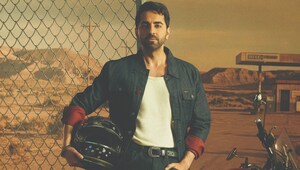Do You Have a ‘Freedom Fund’?
An expert tells you how to build a backup or emergency fund without having to cut down on your spending

Have you been deliberating between choosing a trip or saving up? Do you feel lost when you think about the future? Then have you thought of creating a peace of mind fund, an emergency fund or a freedom fund? Call it what you’d like, but your ‘back-up stash’ plays a critical role in influencing your money matters long-term. The absence of which, could leave you feeling insecure. To help you save up without feeling the pinch, we asked Dipika Jaikishan, Co-Founder and COO of Basis, to share some essential tips.
Why do you need a freedom fund?
“While tough times often warrant the support of family, close friends, and your trusted credit card, a freedom fund or an emergency fund is so much more reliable. It implies taking charge of your financial situation -- for your family and yourself. This fund is also your security blanket, should any unpleasant surprises come your way,” explains Dipika.
What exactly is a freedom fund?
Your ‘rainy day fund’ is a readily available fund (liquid) -- meaning you have cash when life unexpectedly strikes, or you suddenly need money to do whatever the hell you want. “This fund could be termed the ‘backbone’ of any financial plan because it gives you the flexibility and freedom to plan for your other long-term and short-term financial goals with a sense of security,” says Dipika.
When would you typically use this fund?
In case of unplanned expenses.
In case of medical emergencies.
In case of a sudden job loss or disrupted cash-flow.
In unexpected instances where you might have to undergo pay-cuts.
In unforeseen situations which concern kids, parents, or other close relatives.
What a freedom fund is not.
“This fund, unlike others, is not linked to a pre-planned goal like a car, a house, a fancy new gadget; or factored in when considering costs for your next vacation, child’s education, or investment strategies,” explains Dipika.
Just how big or small should your freedom fund be?
While that is highly dependent on your current source of revenue and financial obligations, financial planners worldwide suggest having 3 to 6 months worth of expenses parked aside for emergencies. While this is traditionally a rule of thumb, the amount can vary based on individual preferences. The idea of this fund is to bring you peace of mind and buy you some leeway time.
How do you decide the amount that goes into your freedom fund?
According to Dipika, this is how you can decide how much amount to put in your freedom fund. Tabulate your monthly expenses by breaking them up into 2 parts, and prioritize accordingly.
Fixed expenses: Rent, utility bills, groceries, your child’s education fees, any mandatory extracurricular activities, house-staff salaries, monthly SIP, EMI’s, etc.
Variable expenses: Recreational activities such as movies, dining out, gifting, shopping, and other indulgences, that you can afford.
Taking 100% of your fixed monthly expenses and 20% of your variable expenses, will help you get an estimated monthly expense figure – expenses that can’t be compromised on, even if your existing cash flow stops.
“This isn’t a small amount to save. But being determined and being hawk-eyed about your expenditure -- pays off in the long run. Slowly, you see your savings start building up. Within 4 months, you’ll be sitting pretty, on a handsome cushion of cash,” says Dipika.
Where do you park these funds?
For ease of tracking, direct your monthly contributions into a different savings account. Look for options to invest and grow your money. What you need is a product, which is easy to redeem, at no penalty, with better returns than your existing savings bank account.
Generally speaking, a freedom fund has to be 100 percent stable and available at a moment's notice. “Safety and liquidity take priority over everything else. And as deposits build, you experience a valuable payoff -- peace of mind. Which in turn, allows you to channel your energy into your biggest assets -- yourself and your life,” concludes Dipika.
more from Life

Why going offline is suddenly Gen Z’s favourite flex

Four celeb-inspired salad recipes are what January lunches should be made of

If you’re celebrating this season, you’ll want to do it at Shangri-La Eros New Delhi

It's the Year of the Horse and here's what it means for you

If a man wears this, date him….

Vanishing acts or forever energy? Here’s how you can enter the new year with a happy heart

This year’s beauty trends, written all over our faces

Anya Singh is just getting started

Bows are back and they’re not playing cute anymore

Ayushmann Khurrana reflects on navigating Bollywood, being embraced as an outsider, and the layered realities of fame
